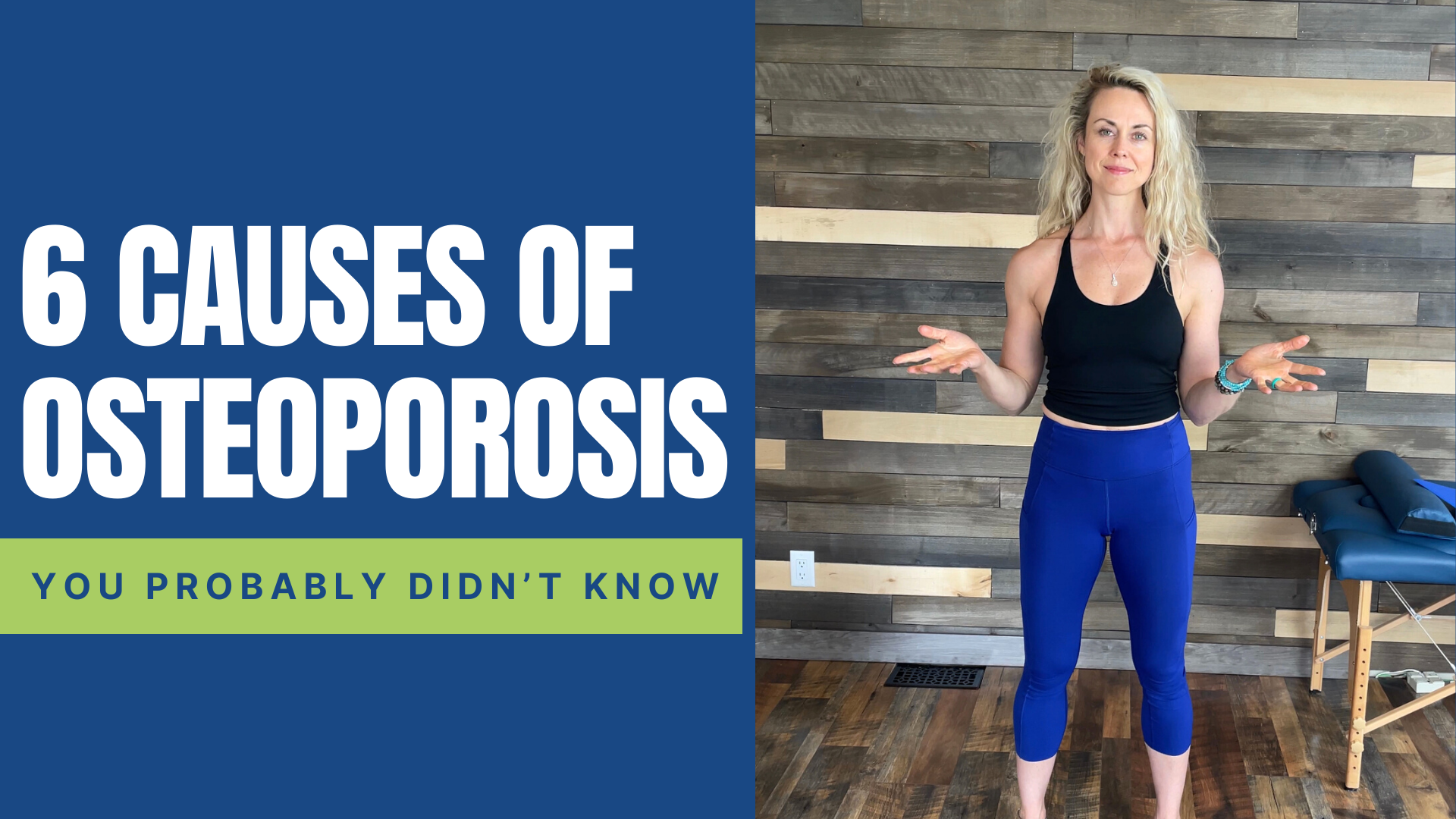Are you suffering from osteopenia or osteoporosis, and you’re unsure how you got here? It’s important to identify the root causes of osteoporosis which can be different for each person. However, there are some commonalities.
What we eat, our environment, toxin exposure, activities, and stress all play into how our body is building bone and breaking it down. It’s important to look at our modifiable lifestyle factors like sleep, nutrition, movement (or lack thereof), and also how we are digesting and absorbing food and getting the optimal amount of nutrients that we need for proper bone health. Now let’s dive into six potential causes of low bone density.
Rather watch or listen?
6 causes of osteoporosis
1. Chronic Inflammation
Ninety percent of all chronic disease is linked to excessive or persistent inflammation, and osteoporosis is no different. For each person, different inflammatory drivers such as food, bugs, toxins, trauma, and hormones could affect your bone health.
2. Lack of Resistance Training and Weight-Bearing Exercises
This is one of the most important things to do, especially as you get older because we are going to develop sarcopenia, which is a loss of muscle mass. With the loss of muscle mass, we also lose bone density if we’re not stimulating our bones. We do this through resistance training and weight-bearing exercises. It’s important to make sure you continue that, if not increase it, as you get into your older years.
3. Heavy Metal Toxicity
We are exposed to heavy metals on a fairly regular basis. Lead happens to be a key driver in osteoporosis. It’s important to recognize that things such as protein powders and so on that aren’t third-party tested can include heavy metals like arsenic and lead. So, you want to make sure that you’re assessing those products and supplements to try to lessen the toxic burden.
Some of us can be much more sensitive to heavy metals than others because our ability to detoxify is unique. One person may have a very high toxic load and toxic burden that could affect their bone health, whereas another person may be unaffected.
4. Low Estrogen
As women are going through menopause, the production of estrogen shifts from the ovaries to their adrenal glands. This decrease in estrogen can significantly affect bone health. For some people, that may exacerbate their loss of bone density, and for some people, hormone replacement may be the best way to target low bone density, especially if they have osteopenia.
However, hormone replacement may not be appropriate for many people due to family histories, beliefs, philosophies, and so on. It’s important, though, either way, to recognize that it can be a key driver in your osteopenia or osteoporosis.
5. Gut Health
Things such as the leaky gut, celiac disease, and even non-celiac gluten sensitivity can go undiagnosed for many years, and all of these things can play such a huge role in bone health. Exploring your digestion, absorption, and elimination, as it relates to gut health, is a key thing that you want to explore if you have symptoms of chronic inflammation or if you have low bone density per DEXA scan.
6. Smoking
Smoking is one of the biggest drivers of low bone density, not to mention poor overall health. Please make sure that if you’re smoking that you consider getting the help that you need to be able to quit.
Hopefully, this overview gave you some food for thought about how to begin to address your low bone density.
Please make sure to check out all of our other vagus nerve hacks that can help you optimize your health and longevity. Make sure to give this a share and subscribe to our YouTube channel, The Movement Paradigm for weekly tips on mindset, nutrition, and movement.
Ancient Navel Massage Practices

